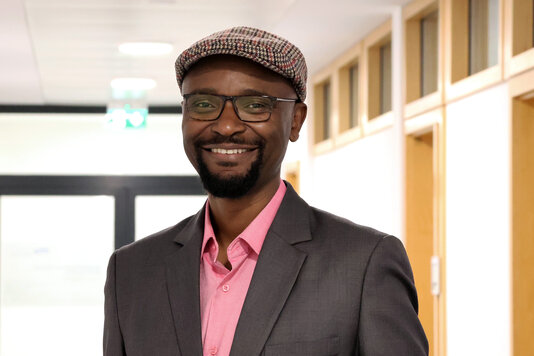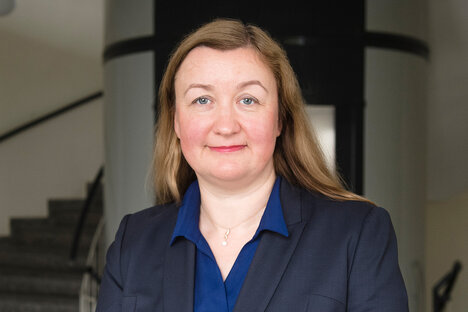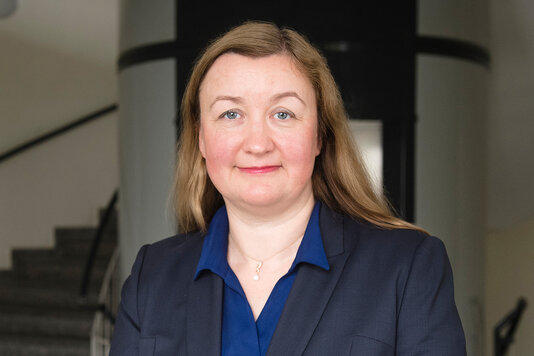
The project sets out a research agenda and academic programme to investigate the epistemic implications of International Research Collaborations (IRCs) and their interculturality in the meaning of science and knowledge production. By exploring IRCs as an instance of (science) research interculturality, the fellowship will design an advanced research agenda and assumptions on the conditions of the possibility of cultural studies of science.
When engaging in IRC, we assume that researchers originating and operating from African and European contexts represent different predicaments of academic, epistemic, methodological, and practical experiences and cultural values, working together for a common good (goal) of producing new knowledge and scientific discovery. In a context marked by rising decolonial discourses, the time is ripe for researchers to rethink science as a global institution which produces global public good by individual or collectives in local, national, regional, and transnational arrangements while acknowledging its social and cultural bases.
Evidence about the value of IRCs, particularly for scientific discoveries, is often based on academic research working under asymmetric conditions of knowledge production in the Global North [1]. There needs to be more research evidence on the quality of IRCs between Africans and Europeans and their contribution to national and global science. Often, Africans are portrayed in IRCs as playing “supporting roles, which may be necessary but not sufficient on their own to have set the far-reaching stage for global mega-science” [2]. While there is a surge in research about the fairness in geopolitical Global North (GN) and Global South (GS) scientific partnerships, particularly in the context of postcolonial and decolonial epistemological perspectives, a gap persists in the quality of the continuously expanding individual and institutional IRCs between countries in the GN and GS. There has been a renewed academic and policy interest in reviewing the character of knowledge partnerships between GN and GS amid calls for ‘decolonisation’, which we will revisit as we set a common research agenda.
Researchers engaging in IRCs carry cultural repertoires of their life experiences in local and international academic socialisations (cultural capital – à la Bourdieu [3]), which informs their epistemic beliefs and situatedness (positionality) about knowledge and knowledge production. Our project will focus on examining the Euro-Africa IRCs – more specifically, German and selected Sub-Saharan African IRCs – through some of the following research questions:
[1] David P. Baker and Justin J.W. Powell (2024). Global Mega-Science Universities, Research Collaborations, and Knowledge Production. Stanford University Press.
[2] Op. Cit.
[3] Bourdieu P (1997). The forms of capital. In: Halsey AH, Lauder H, Brown P, et al. (eds) Education: Culture, Economy, Society, pp. 46–58. Oxford: Oxford University Press.

Prof. Patrício V. Langa
Eduardo Mondlane University (Mozambique) | Sociology, Comparative Higher Education, Science and Policy Studies
Patrício Langa is a sociologist and Professor of Comparative Higher Education, Policy, and Innovation Studies at Eduardo Mondlane University (U.E.M.), Mozambique, where he formally advised the Rector on strategic planning. Langa has been a research fellow and visiting higher education and science studies professor at the Forum Internationale Wissenschaft, University of Bonn, Germany, and the Ali Mazrui Centre for Higher Education, University of Johannesburg, South Africa. He also collaborates with the KTH Royal Institute of Technology in Stockholm (Sweden), Worcester Polytechnic Institute (USA) and Autonomous University of Lisbon (Portugal), and formerly collaborated with the Danube University Krems (Austria).
Professor Langa served as the first executive director for external evaluation in the National Council on Higher Education Quality Assurance and Accreditation in Mozambique (CNAQ), and continues to serve on the board of non-executive directors. He is the founding president of the Mozambican Sociological Association (A.M.S.). and established the African Consortium of Higher Education Researchers (ACHER).
Patrício Langa holds a BA in Social Sciences, a BA Hons in Sociology from U.E.M., a MEd in Higher Education Studies and a PhD in Sociology and Education from the University of Cape Town. His research interest is in the intersection of sociology, higher education and science studies.
 ©
© TU Dortmund / Felix Schmale
©
© TU Dortmund / Felix Schmale
Prof. Liudvika Leišytė
TU Dortmund University | Higher Education Research
E-mail: liudvika.leisyte@tu-dortmund.de
 ©
© TU Dortmund / Felix Schmale
©
© TU Dortmund / Felix Schmale
Prof. Liudvika Leišytė
TU Dortmund University | Higher Education Research
E-mail: liudvika.leisyte@tu-dortmund.de
Liudvika Leišytė is Professor of Higher Education and Deputy Director at the Center for Higher Education (zhb) at TU Dortmund University. She holds a PhD degree in Public Administration from the University of Twente in the Netherlands. For ten years, she was involved in and managed various research projects at the Center for Higher Education Policy Studies (University of Twente), where she is still a visiting senior scholar. She was visiting professor at Nagoya University in Japan in 2019 and Sciences Po in France in 2022.
Prof. Leišytė has actively been involved in a number of international and national research projects studying changing university governance, and management, interdisciplinarity, quality assurance and evaluation, and digitalisation in higher education. In 2018 she received the Emerald Literati Award for the Highly Commended paper 2018 in The Learning Organization international journal.
Liudvika Leišytė has published five (co-edited) books on reforms of higher education, governance of higher education and organisational change in universities. Her sixth book, the “Research Handbook on the Transformation of Higher Education”, was published by Edward Elgar in 2023. Her work has appeared in a number of prestigious international peer-reviewed journals, including Higher Education, Science and Public Policy, Studies in Higher Education, Minerva, Public Management, and Public Administration.
Prof. Leišytė is a member of editorial boards of Higher Education Policy, Triple Helix, The Learning Organization, Social Inclusion, and Zeitschrift für Hochschulentwicklung. She is an Advisory Board member of the Lithuanian Higher Education Quality Assurance Agency delegated by the Lithuanian Parliament Education and Science Committee. In 2023 Prof. Leišytė was elected as a member of the Academia Europaea (Academy of Europe).
Website
https://hdhf.zhb.tu-dortmund.de/en/professorship/team/liudvika-leisyte